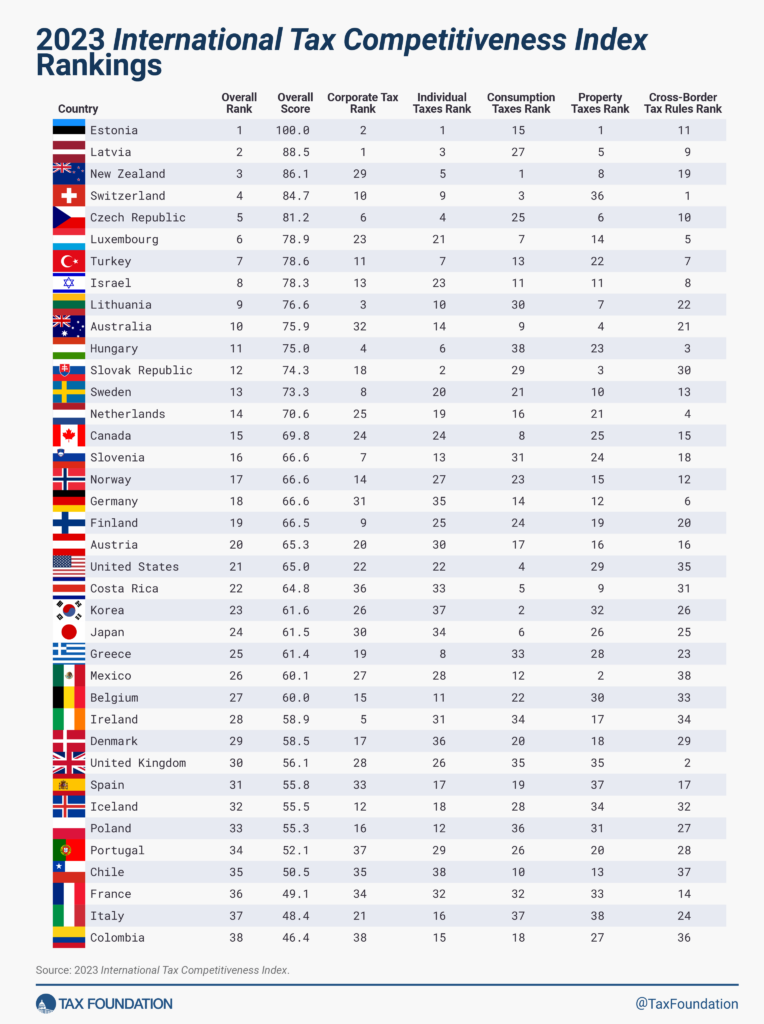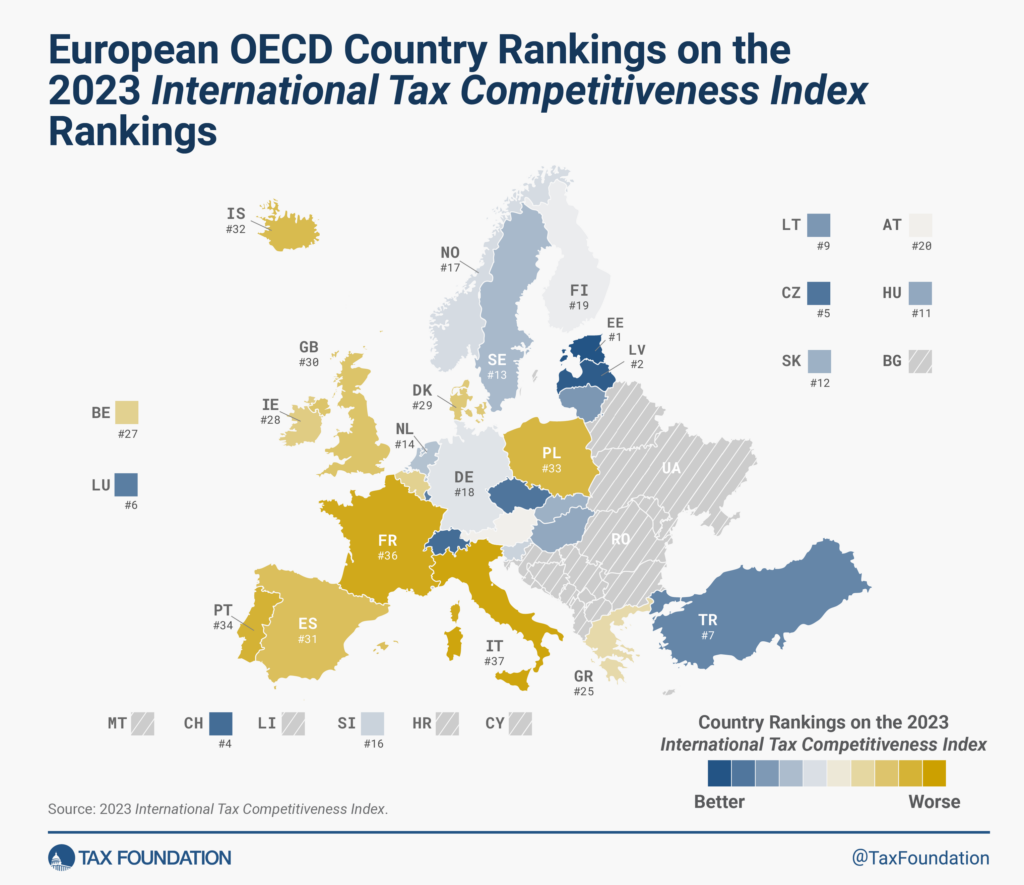For the tenth year in a row, Estonia has the best tax code among the members of the Organisation for Economic Co-operation and Development – known as the OECD – according to the International Tax Competitiveness Index 2022, compiled by the Tax Foundation.
According to the think thank, Estonia’s top score is driven by four positive features of its tax system.
“First, it has a 20 per cent tax rate on corporate income that is only applied to distributed profits. Second, it has a flat 20 per cent tax on individual income that does not apply to personal dividend income,” the Tax Foundation says.

“Third, its property tax applies only to the value of land, rather than to the value of real property or capital. Finally, it has a territorial tax system that exempts 100 per cent of foreign profits earned by domestic corporations from domestic taxation, with few restrictions.”
While Estonia’s tax system is the most competitive in the OECD, the other top countries’ tax systems received high scores due to excellence in one or more of the major tax categories.
“Latvia, which recently adopted the Estonian system for corporate taxation, also has a relatively efficient system for taxing labor income,” the Tax Foundation says.
Colombia and Italy’s tax codes the least competitive
“New Zealand has a relatively flat, low-rate individual income tax that also largely exempts capital gains (with a combined top rate of 39 percent), a broad-based VAT, and levies no taxes on inheritance, property transfers, assets or financial transactions.”

According to the think tank, Colombia has the least competitive tax system in the OECD. It has a net wealth tax, a financial transaction tax and the highest corporate income tax rate of 35 per cent. Colombia’s VAT covers less than 40 per cent of final consumption, revealing both policy and enforcement gaps.
“Italy has the second-least competitive tax system in the OECD. It has multiple distortionary property taxes with separate levies on real estate transfers, estates and financial transactions, as well as a wealth tax on selected assets. Italy’s relatively high VAT rate of 22 per cent applies to the fifth-narrowest consumption tax base in the OECD.”
The International Tax Competitiveness Index seeks to measure the extent to which a country’s tax system adheres to two important aspects of tax policy: competitiveness and neutrality. It’s compiled by the Tax Foundation, an American think tank based in Washington, DC. It was founded in 1937 by a group of businessmen to “monitor the tax and spending policies of government agencies”.

